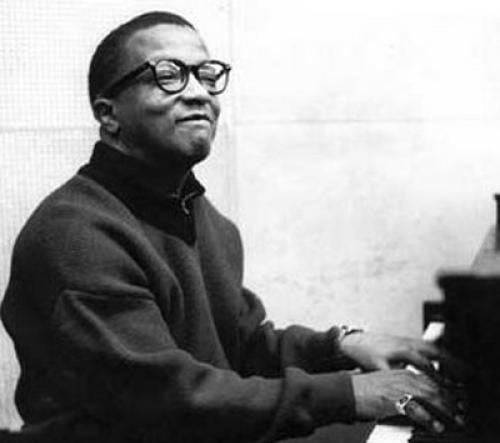by Stephen Duffy
I wish I’d met Billy Strayhorn. I wish I’d been able to tell him what a profound effect he, his life, and more importantly his music has had on me. I was 16 or 17 when I first heard Nat King Cole perform Billy’s song Lush Life. It knocked the stuffing out of me then, and knocks it out of me still. Its a hymn to broken hearts, broken lives and the truth of the human condition. I’ve never met a singer who wasn’t simultaneously won over by it and terrified by it.
I’ve performed it occasionally over the years and at the age of 43 I’m only beginning to do it justice, because now I’ve lived at least some of what he wrote about. I only really started to “get” Lush Life when I was in my late 30’s. When my younger vocal students express an interest in performing it I put them off. Yet Billy Strayhorn wrote it when he was only 17 years old.
The wonderful Scottish jazz vocalist Annie Ross knew and liked Billy. Now in her 80’s, and having lived the words of this song, her time-served performance of it filmed in Glasgow captures its very essence.
Billy Strayhorn’s body of work is huge, and he shares the credit on hundreds of works with his mentor, boss, collaborator and friend Duke Ellington. Here was a young, shy, urbane, highly intelegent African American man working in one of the highest profile entertainment organisations in the United States, but who was also unashamedly and openly gay in a very intolerant age. He was everything that America told him he was not allowed to be.
Though the Duke Ellington band was always chock full of creative talent, Billy is arguably its most important alumus. He was employed initially to be Ellington’s staff arranger, orchestrating Ellington’s compositions and those of his own that Ellington requried. But he ultimately became Ellington’s collaborator, each of them working together on the same work. They were so in sync musically, that its sometimes hard to know where Ellington stopped, and where Strayhorn began.
In 1940, the American Society of Composers and Publishers went on strike, and society members, including Ellington, were banned from recording their work for broadcast. However Billy wasn’t a member and came up with a huge pile of new tunes for broadcast. Within this pile was a score that he’d written as his audition piece for the Ellington band, its title the simple direction Ellington had given him to get to there: Take the A Train.
Though he lived his professional life in Ellington’s shadow, Billy could and did exercise his right to compose music of incredible sophistication for himself. Lush Life, Chelsea Bridge, Upper Manhattan Medical Group, Blood Count, Isfahan, Johnny Come Lately and Satin Doll – a song often incorrectly credited to Ellington. I don’t think there was any malice in Ellington blagging the credit for one of Billy’s tunes, but Ellington had a colossal ego and for all that Billy was his closest friend, never shied away from exerting his own artistic influence: Ellington knew a hit when he heard it and Ellington was the boss. Always.
Billy Strayhorn’s body of work is huge, and he shares the credit on hundreds of works with his mentor, boss, collaborator and friend Duke Ellington. Here was a young, shy, urbane, highly intelegent African American man working in one of the highest profile entertainment organisations in the United States, but who was also unashamedly and openly gay in a very intolerant age. He was everything that America told him he was not allowed to be.
Though the Duke Ellington band was always chock full of creative talent, Billy is arguably its most important alumus. He was employed initially to be Ellington’s staff arranger, orchestrating Ellington’s compositions and those of his own that Ellington requried. But he ultimately became Ellington’s collaborator, each of them working together on the same work. They were so in sync musically, that its sometimes hard to know where Ellington stopped, and where Strayhorn began.
In 1940, the American Society of Composers and Publishers went on strike, and society members, including Ellington, were banned from recording their work for broadcast. However Billy wasn’t a member and came up with a huge pile of new tunes for broadcast. Within this pile was a score that he’d written as his audition piece for the Ellington band, its title the simple direction Ellington had given him to get to there: Take the A Train.
Though he lived his professional life in Ellington’s shadow, Billy could and did exercise his right to compose music of incredible sophistication for himself. Lush Life, Chelsea Bridge, Upper Manhattan Medical Group, Blood Count, Isfahan, Johnny Come Lately and Satin Doll – a song often incorrectly credited to Ellington. I don’t think there was any malice in Ellington blagging the credit for one of Billy’s tunes, but Ellington had a colossal ego and for all that Billy was his closest friend, never shied away from exerting his own artistic influence: Ellington knew a hit when he heard it and Ellington was the boss. Always.
Ellington and Strayhorn had been a team for 28 years until Billy died from cancer in 1967. Ellington’s wry response to those who called Billy his alter ego was “Billy is only my right arm, left foot, eyes, stomach, ears and soul – not my ego”. Ellington had ego enough for both of them. Billy Strayhorn’s legacy doesn’t need an ego to back to it up.


